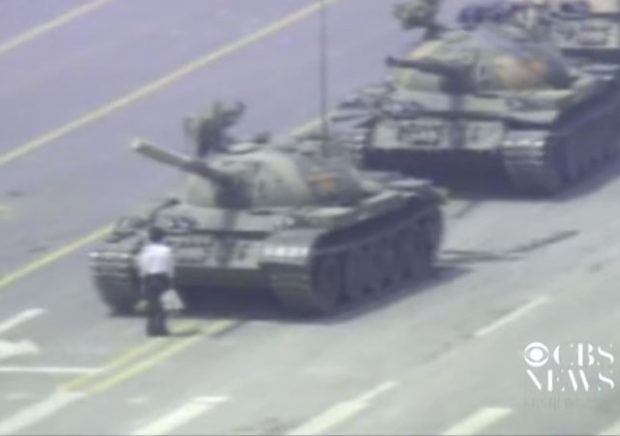On Name Changing and Statue Toppling
By all means let us reexamine the names of military installations and the statues of our supposed heroes. But let us wait until the violence has dissipated.

Only today did I realize you are “THAT” William Jacobson, “That” Legal Insurrection. I listen to Mark Levin (my hero) when driving home from work. Mark Levin has mentioned you a few times in the past. Didn’t make the connection until today, I simply thought you were a fellow Instructor; being attacked and on the ropes, and hoped to encourage you.
A Digital Revolution Comes for the Cash King |
As the coronavirus changed our perception of cash from "boo-ya I've got money" to "why am I carrying around this germ-infested piece of paper?" many shoppers started leaving their cash at home, and some retailers stopped accepting it altogether.
Is this the death of cash?
The pandemic has fundamentally changed how consumers pay for items, Visa’s European chief told the FT. And it's not just that shoppers are using debit and credit cards more: Contactless payments, which use radio-frequency tech or QR codes to pay with taps or scans, are gaining traction.
So what's preventing the cashless revolution? Installing contactless systems is expensive, especially for small businesses. Consumers also need smartphones to use the tech.
Plus, 6% of U.S. adults are “unbanked,” meaning they do not have a checking, savings, or money market account. And access to banking falls unevenly across racial lines: 4% of white adults are unbanked, compared to 14% of Blacks and 11% of Hispanics, according to data from the Fed. If stores drop cash entirely, millions could get shut out.
Bottom line: The coronavirus has not only transformed what we buy, but how we buy. The transition to digital payments just got a dose of jet fuel.
|

By 2011, The OIC would call for “constructively engaging to bridge divergent views on the limits to the right to freedom of opinion and expression.” The Obama administration would hurry to cross that bridge, with Secretary Clinton calling in the same year for the utilization of “old-fashioned techniques of peer pressure and shaming.”Read the whole thing.
Also in the same year, Secretary of Defense Robert Gates would call Terry Jones—pastor of a small Florida church—and urge him not to conduct a protest which was scheduled to include a public burning of the Quran. Top U.S. General David Petraeus publicly “condemned” the stunt and warned that the act would put U.S. troops at risk in Afghanistan.
However odious one might find the burning of books, it is undoubtedly legal speech under traditional American jurisprudence. Rather than pointing out that the U.S. military exists to defend the rights of its citizens to speak freely—even imprudently—Petraeus inverted the relationship between the citizenry and soldiery, such that our forces in Afghanistan were now regarded as little more than hostages to the good behavior of Americans, lest they do or say something our enemies (or for that matter supposed Afghan allies) might object to.
Jones eventually succumbed to the pressure and relented, which didn’t stop the city of Gainesville, where Jones resided, from billing the church $200,000 for the security costs associated with his demonstration.
And of course, the arrest of Nakoula in 2012 made clear that the Obama Administration had moved well beyond mere “peer pressure and shaming” to fully adopt the logic of the “test of consequences.”
With governmental acquiescence, this insidious logic spread to society at large.






